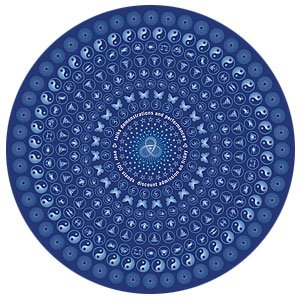
Last week I went to the Mind Body Spirit Northern Festival in the centre of Manchester.
I went largely out of curiousity. Steve Hollinghurst who I heard speak at Greenbelt trains churches to run stalls at Mind Body Spirit fairs. It seems to me a good place for evangelism for Unitarians too. I'd like to see us running stalls at these things. But what would we have on them? Perhaps Emerson and Thoreau's books would be good. But beyond that I'm unsure.
Sanctus1 were there (I still haven't visited them yet). As was the Manchester Centre for Urban Spirituality. I think in general we'd sit well amongst that ecology.
I had a few reflections as I wandered around the fair. Some of it was incredibly commercial, indeed one stall looked like an infomercial as a guy in a suit demonstrated some kind of juicer I think. Some of the stuff like life coaching about relationships and bright lights for dealing with Seasonal Affected Disorder made infinite sense to me. Other things like Aura photography I was more sceptical about. I'm starting to think that things like palm reading is about human connection, and the ability for us to communicate with each other non-verbally. Then there were things that made me more uncomfortable like all the cultural misappropriation around Buddhist and Native American artefacts.
There were more women than men I think. As far as I could work out everyone who was attending was white, though some of the exhibitors weren't. There were all kinds of ages there.
It was a good morning I spent there. I'm confirmed in my conviction that Unitarians should be organising at these things. It's one of the places where people are searching. So we should be there.
Comments